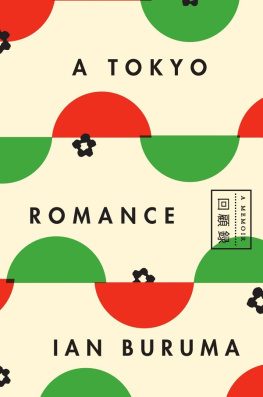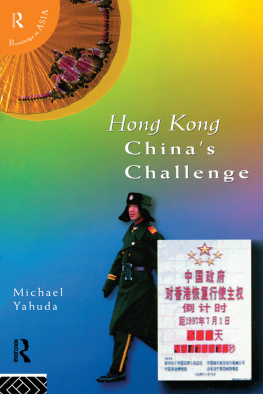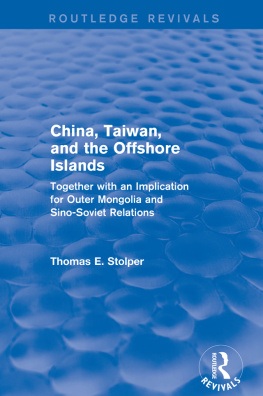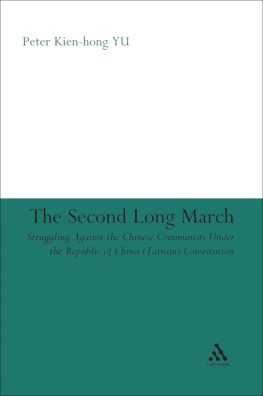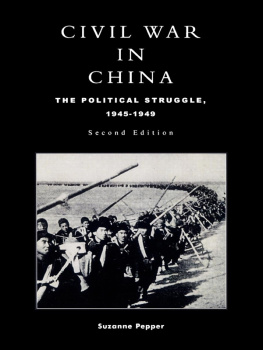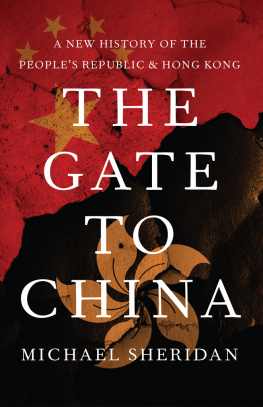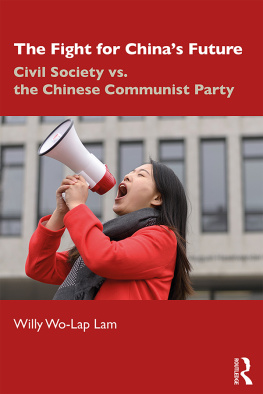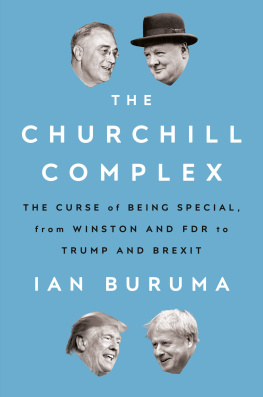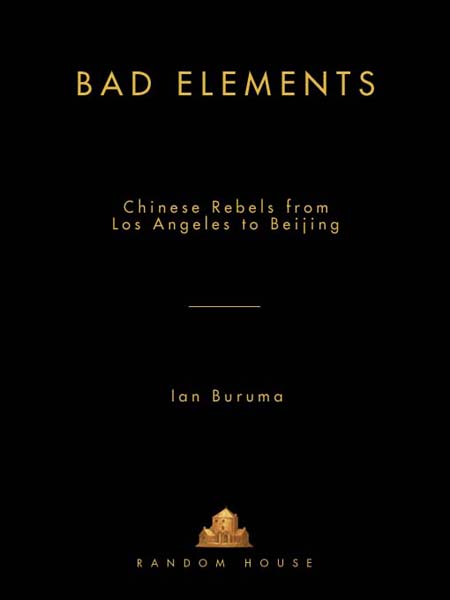
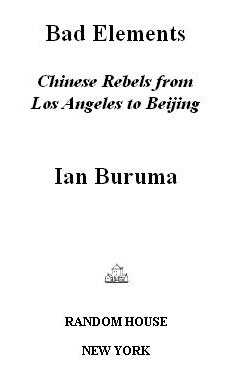
Contents
For R. V. Schipper
... Is there one single maxim that could ruin a country?
Confucius replied: Mere words could not achieve this. There is a saying, however: The only pleasure of being a prince is never having to suffer contradiction. If you are right and no one contradicts you, thats fine; but if you are wrong and no one contradicts youis this not a case of one single maxim that could ruin a country?
The Analects of Confucius
Translation by Simon Leys
Introduction:
Chinese Whispers
Strange things happen when Chinese dynasties near their end. Dams break, earthquakes hit, clouds appear in the shape of weird beasts, rain falls in odd colors, and insects infest the countryside. These are the ill omens of moral turpitude and political collapse. While greed and cynicism poison the society from within, barbarians stir restlessly at the gates. Corrupt officials, whose authority can no longer rely on the assumption of superior virtue, exercise their power with anxious and arbitrary brutality. When people, even those who live far from the centers of power, begin to sense that the Mandate of Heaven is slipping away from their corrupted rulers, rebellious spirits press their claims as the saviors of China, with promises of moral restoration and national unity. Millenarian cults and secret societies proliferate and sometimes explode in massive violence.
At the end of the Han dynasty, in the second century, a faith-healing sect named the Yellow Turbans caused havoc. Their leader, a Taoist priest, promised to lead his followers to the Way of Great Peace (Taiping Dao), and although he was killed in 184 A.D., the rebellion of the Yellow Turbans took more than twenty years to put down.
The end of the Mongol Yuan dynasty, in the fourteenth century, came after a rash of local rebellions. One of them was staged by a secret society called the White Lotus, whose folk-Buddhist leaders issued dark warnings of an imminent apocalypse. The apocalyptic theme was later picked up by another peasant messiah, a martial arts master and herbal healer named Wang Lun, who rebelled against the Manchu rulers of the Qing dynasty at the end of the eighteenth century. In 1900, a martial arts sect known in the West as the Boxers rose, convinced that a sacred spirit made them impervious to foreign bullets. They were wrong and died in large numbers.
The Qing was finally brought down in 1911, about fifty years after a frustrated scholar called Hong Xiuquan unleashed his Taiping army to establish Gods Heavenly Kingdom in China. He claimed to be a brother of Jesus Christ. He denounced the Manchus as agents of Satan. His crusade left 20 million dead.
Mao Zedong fitted quite neatly in this long line of peasant messiahs. Like his predecessors, he led a rural revolt to expel the barbarians, punish evildoers, and unite the empire. He abhorred superstitution, but his version of scientific socialism would reach the same degree of religious frenzy as Hongs Heavenly Kingdom.
Many people in China felt that the Mandate of Heaven had slipped from the Communist Party in the summer of 1989. Once the terrified rulers had sent in tanks to crush unarmed citizens, they had lost their claim to superior virtue. Marxism-Leninism and Mao Zedong Thought, which had replaced Confucianism as the official dogma and system of ethics, could no longer captivate minds, even in the Party itself. The rigid puritanism of Maos age had made way for the heady amorality and wild corruption of Chinas new capitalism. And at the end of the millennium, a new millenarian cult had arrived, led by yet another faith-healing messiah. Most followers of Falun Gong were harmless elderly folk trying to preserve their good health through breathing exercises. Yet the government behaved as if another revolution were at hand.
Strange flowers bloom in the Peoples Republic of China. They also bloom in Taiwan, the United States, Hong Kong, and Singapore. But in a dictatorial one-party state, religion fills the gaps left by the absence of secular politics. That is why meditators, tree huggers, heavy breathers, or Evangelical Christians can suddenly find themselves blown up into dangerous counterrevolutionaries. In China, every believer in an unorthodox faith is a potential dissident, whether he knows it or not. When the right to rule is justified by dogma, a moral code, a controlling worldview, and the fatherly wisdom of leaders blessed with superhuman virtue, any alternative dogma existing outside the control of the great and virtuous leaders will be seen as a mortal threat.
I believe that Communist Party rule will end in China; sooner or later all dynasties do. But when or how, I cannot say. Will one authoritarian dynasty be replaced, once again, by another, in the name of national unity and superior virtue? Or will the Chinese finally be able to govern themselves in a freer and more open society? The example of Taiwan, whose citizens can now speak freely and elect their own government, shows that it is possible. The example of Singapore, which combines relative economic liberalism with political authoritarianism, points in another, equally plausible, direction.
It was with these questions in mind that I traveled through the Chinese-speaking world between 1996 and 2001from the diaspora of exiles in the West, to Singapore, Taiwan, Hong Kong, and the Peoples Republic of China. During these years, I witnessed the handover of Hong Kong, the first free presidential election in Taiwan, and the beginning of the Falun Gong demonstrations in China. I saw a great deal of vitalityeven optimismon the way, especially in the economic sphere, in China no less than in Singapore or Hong Kong. But there were constant rumblings, too, a kind of background noise of angry people thrown out of work in newly privatized factories, of farmers being squeezed for money by corrupt officials, of religious believers being punished for exercising their faith in public. There was an unmistakable stink of political, social, and moral decay in the Peoples Republic, the smell of a dynasty at the end of its tether.
How to describe the problem of China, with its perpetual seesaws between enforced unity, order, and moral orthodoxy on the one hand and violent religious and political mutinies on the other? It had haunted me since that summer of 1989, when so many Europeans regained their liberties while Chinese failed in their attempt to gain theirs. Perhaps I should start with three stories about walls, metaphorical and real.
In the beginning there were many wallsoften little more than small fortified humps in the northern plainswhich separated settled Chinese states from the barbarian nomads. But legend has it that in the third century B.C., slaves of the wicked Qin emperor pulled the various walls together to form one Great Wall. The Qin emperor was the first monarch to turn several states into one. China really began with him. The Western term for China is named after his state. We dont actually know much about the Qin emperor. But he has gone down in history as the first great dictator, the pinnacle of a new cosmic order, who killed his critics and made bonfires of their books. Mao Zedong, a keen amateur historian, admired him greatly.
The Great Wall was never very effective in keeping out belligerent barbarians, and there are few remaining traces of the Qin. Much of the wall was built only in the sixteenth century, and even those parts are crumbling. It is more as an idea, or a symbol, that the Great Wall cast a lasting spell. First it was a symbol of Chinas isolation and its rulers wish to control an enclosed, secretive, autarchic universe, a walled kingdom in the middle of the world : There are numerous walls within the Chinese world; the Great Wall itself merely protects the Chinese against Devils from without.
Next page

